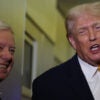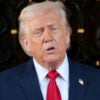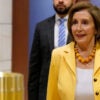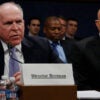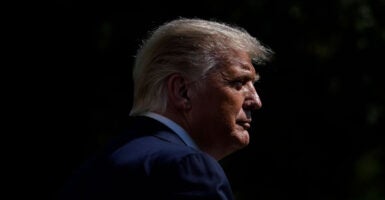On Oct. 24, 2020, Mike Huckabee posted a joke on social media.
“Stood in rain for hour to early vote today. When I got home I filled in my stack of mail-in ballots and then voted the ballots of my deceased parents and grandparents. They vote just like me! #Trump2020“
Huckabee wasn’t the only voter to crack a joke about dead voters during the 2020 election cycle. Twitter user Carol Ricks (@BVMgroupie) posted a meme Nov. 4 featuring a smiling woman surrounded by packages labeled “Emergency Democrat Votes” with the caption, “Hang on, we found more votes!” Facebook user Paula Priesse posted a similar meme the same day on Facebook.
Ricks’ tweet and Priesse’s post both were slapped with labels by Twitter and Facebook.
“Some or all of the content shared in this Post is disputed and might be misleading about an election or other civic processes,” stated a Twitter label added to Ricks’ tweet. “Election officials follow strict rules when it comes to ballot handling, counting and reporting,” noted Facebook below Priesse’s post.
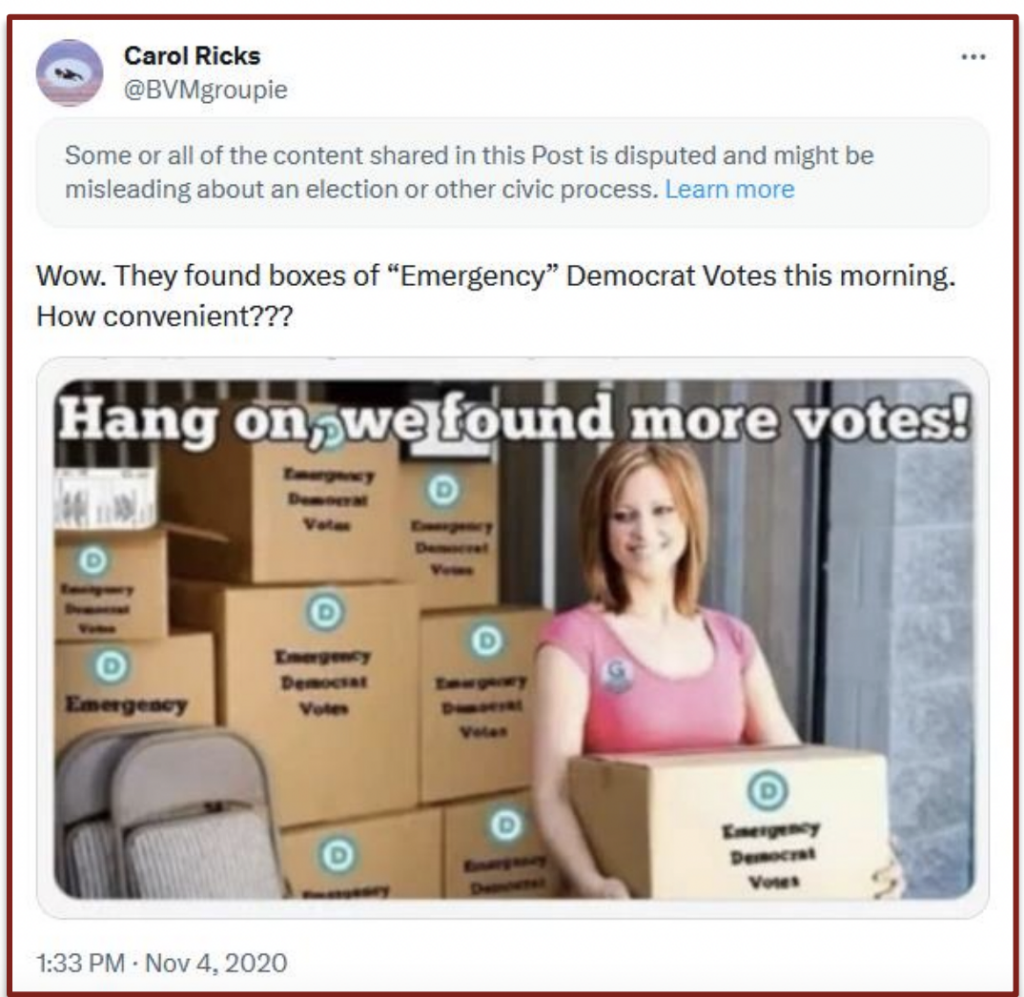
(Photo: House staff report on “The Weaponization of ‘Disinformation’ Pseudo-Experts and Bureaucrats”)
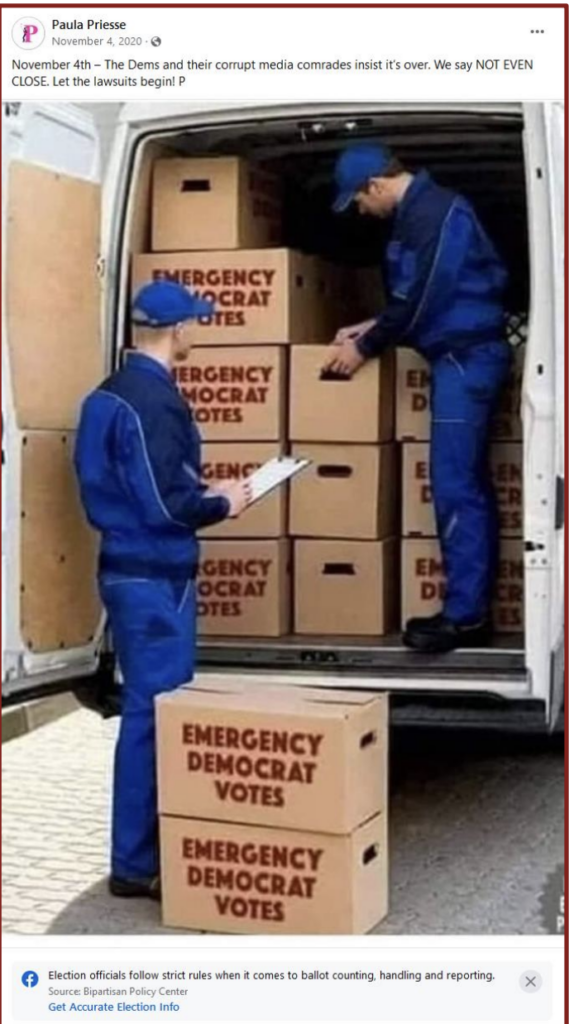
(Photo: House staff report on “The Weaponization of ‘Disinformation’ Pseudo-Experts and Bureaucrats”)
It was no accident that the social media giants labeled these posts, according to an explosive new report from the House Judiciary Committee and the Select Subcommittee on the Weaponization of the Federal Government.
These posts were flagged by the Election Integrity Partnership, which was deeply (but sneakily) intertwined with the federal government.
As the House’s new report outlines, the Election Integrity Partnership, while not itself a government agency, seemingly was created at the wish of a federal government agency and regularly coordinated with federal government officials. Effectively, perhaps due to savvy deep-state bureaucrats aware of how it looked to have federal government employees advocating censorship of Americans or labeling their content as misinformation, the Election Integrity Partnership became a middleman between government officials and the social media companies.
Here’s how it worked. Government officials, and others, would flag posts they deemed to contain “misinformation” or “disinformation” to the Election Integrity Partnership. The organization then would do research, often find similar instances of such social media posts, and then alert the relevant social media companies.
When alerting the social media companies, the EIP would send “specific recommendations on how the social media platforms should censor the posts,” states the House report. Such recommendations included “reducing the posts’ ‘discoverability,’ ‘suspending [an account’s] ability to continue tweeting for 12 hours,’ ‘monitoring if any of the tagged influencer accounts retweet’ a particular user, and, of course, removing thousands of Americans’ posts.”
Unsurprisingly, the Election Integrity Partnership, working with the federal government, largely targeted “disinformation” from conservatives, not liberals.
“[T]he federal government and universities pressured social media companies to censor true information, jokes, and political opinions,” states the House report. “This pressure was largely directed in a way that benefitted one side of the political aisle: true information posted by Republicans and conservatives was labeled as ‘misinformation’ while false information posted by Democrats and liberals was largely unreported and untouched by the censors.”
Some prominent conservatives were targeted by the EIP for censorship, including then-President Donald Trump, former House Speaker Newt Gingrich, Rep. Marjorie Taylor Greene of Georgia, Fox News’ Sean Hannity, Judicial Watch’s Tom Fitton, The Federalist’s Mollie Hemingway and Sean Davis, Turning Point USA’s Charlie Kirk, Newsmax, and The Babylon Bee, a satire site.
In the case of Carol Ricks’ and Paula Priesse’s posts, an unnamed Election Integrity Partnership staffer wrote in the ticket associated with them: “Users on Twitter and Facebook are sharing manipulated images of people moving boxes in trucks labeled ‘Emergency Democrat Votes.’ We suggest labeling or removing tweets that use this photo, as it could undermine people’s faith in the legitimacy of the election process. Though the image may seem ridiculous, some users may still believe it is real.”
“In both cases, the EIP successfully induced the [social media] platforms to append labels to the posts,” the House report states.
Is the kind of work Americans want their bureaucrats doing? Reporting tips to a group focused on the censorship of Americans who make jokes about the election and getting those Americans’ posts slapped on social media sites?
Furthermore, the closeness of the Election Integrity Partnership to government bureaucrats appears to be no accident, according to an email obtained by subpoena and cited in the House report.
In an email dated July 31, 2020, Graham Brookie, vice president and senior director of the Atlantic Council’s Digital Forensic Research Lab, writes: “I know the Council has a number of efforts on broad policy around the elections, but we just set up an election integrity partnership at the request of DHS/CISA.” (Emphasis added.) DHS is the U.S. Department of Homeland Security, and CISA is the Cybersecurity and Infrastructure Security Agency, housed within DHS and created in 2018.
Besides pushing for the creation of the Election Integrity Partnership, federal government officials maintained numerous ties with it.
“Throughout the fall of 2020, CISA officials coordinated extensively with the EIP and CIS [Center for Internet Security]. Emails obtained by the [Judiciary] Committee and Select Subcommittee pursuant to a subpoena show clearly that the EIP system was designed to operate as a unit, not as a separate entity from DHS,” states the House report. The Center for Internet Security, per the report, is a “CISA-funded nonprofit.”
Those ties included a Department of Homeland Security intern with “direct access to the EIP’s internal ticketing system who could (and did) share this information with the agency,” notes the report.
Look, I don’t throw around this word as lightly as the corporate media does, but come on … how is this not collusion?
Do people sometimes write inaccurate things on social media? Absolutely. But there’s a reason most of us don’t want the federal government fact-checking social media: Because we know that, in the wrong hands, “fact-checking” quickly becomes political and driven by agenda, not the truth.
On social media sites, as is true for any public square, plenty of people can—and often do—speak up when they think something is inaccurate. That’s a healthy way for a society to debate the truth, and one that ensures reason, not an agenda, is the governing force.
What this House report shows is the depths that deep-state bureaucrats will go to try to control the national conversation. It’s chilling—and as we head into the 2024 election, we should be thinking about how to ensure our bureaucrats aren’t devising another system like this.
Have an opinion about this article? To sound off, please email [email protected], and we’ll consider publishing your edited remarks in our regular “We Hear You” feature. Remember to include the URL or headline of the article plus your name and town and/or state.



